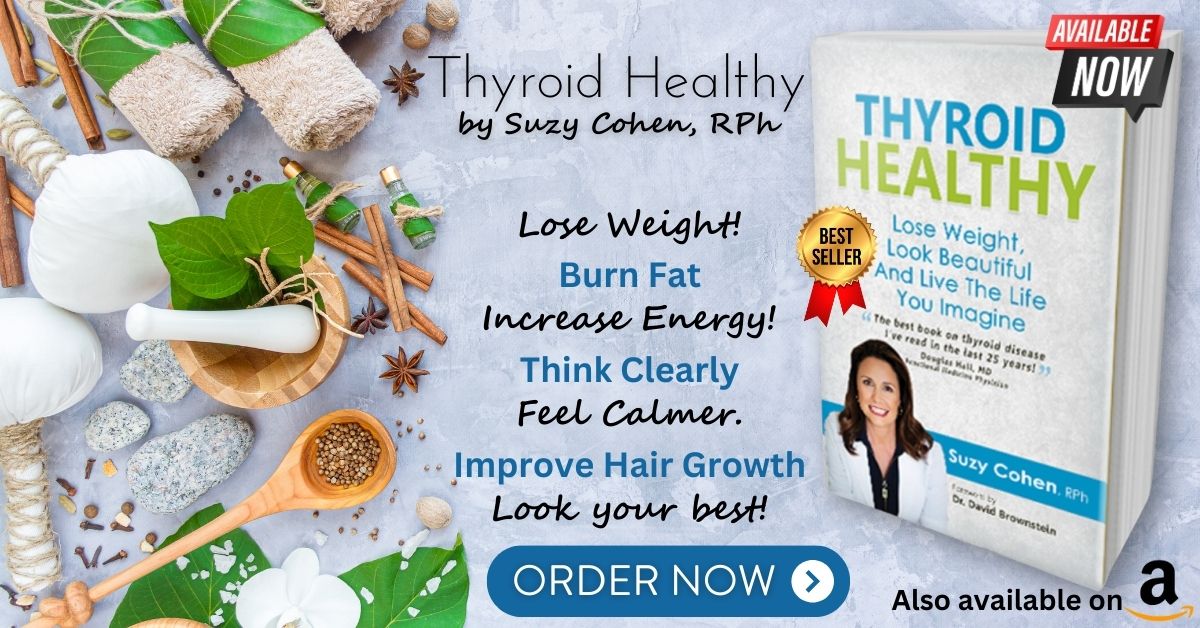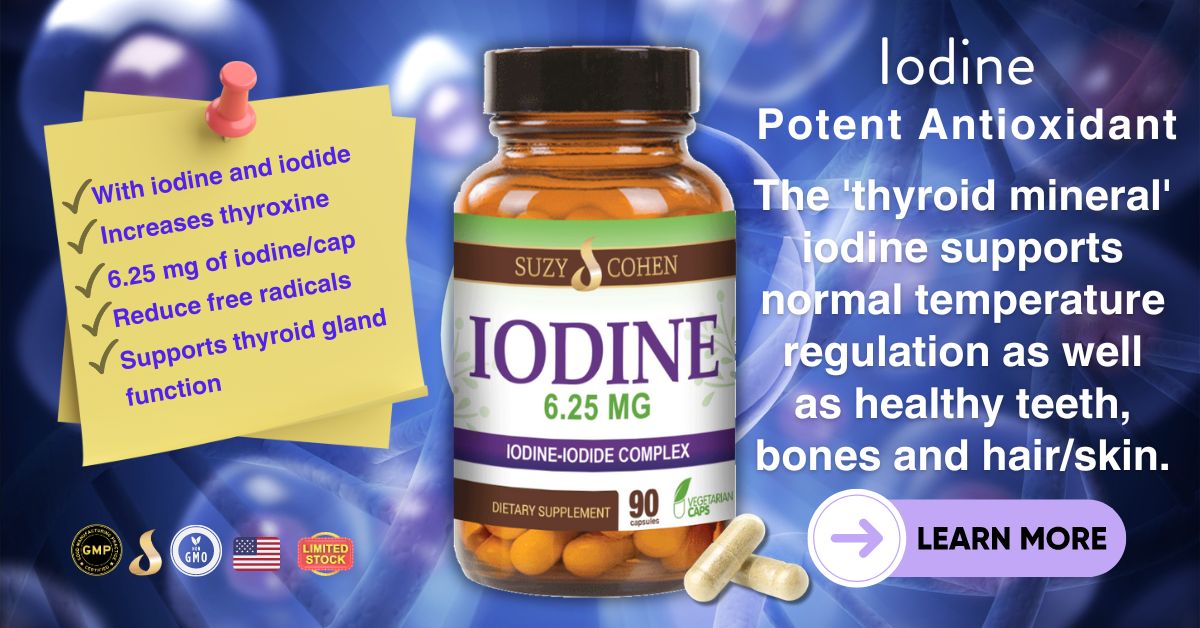What's On This Page?
ToggleWhen it comes to the health of your thyroid, that butterfly-shaped gland at the base of your neck, iodine plays a starring role. It’s like the lead actor in a blockbuster movie, where everything hinges on its performance.
Surprisingly, despite its critical role, many are unaware of how iodine’s presence or absence can impact thyroid health, particularly in the development of thyroid nodules. Did you know that approximately 5% to 10% of the adult population will have a palpable thyroid nodule in their lifetime? This statistic highlights the importance of understanding iodine’s role in thyroid health.
What is Iodine and Why is it Important?
Iodine is a trace mineral essential for the production of thyroid hormones, thyroxine (T4) and triiodothyronine (T3). These hormones regulate various body functions, including metabolism, energy generation, and mood stabilization. Here’s how iodine contributes to thyroid health:
- Hormone Production: Iodine is a key component in the synthesis of thyroid hormones. Without adequate iodine, your thyroid cannot produce sufficient hormones, leading to hypothyroidism.
- Cellular Conversion: It assists in the conversion of T4 to the more active T3 hormone, impacting numerous physiological processes. I made a graphic to show you how this works, and to show you how deiodinase enzymes remove iodine from T4 in order to turn it into T3 (which is more biologically active). T3 hormone is most similar to the drug known as Cytomel® which is Liothyronine available by prescription. T4/T3 combination drugs are a combination of these hormones derived from purified pig gland extract, and sold as “NDT” drugs like Armour®.
Do you want to test yourself for iodine levels? If so, read my article about it first: Iodine Testing Simplified: Top 6 Iodine Testing Methods Available Now.
Also, this is interesting, The Truth About Iodine and Shellfish Allergies and Iodine Deficiency.
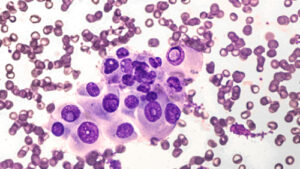
Understanding Thyroid Nodules
Thyroid nodules are lumps that can form in your thyroid gland. When its large enough to be seen in your neck, it’s usually referred to as a “goiter.” The name goiter and goitrogen are related.
A goitrogen is a food or spice or anything that suppresses iodine uptake, which then could cause a goiter. They are typically benign (non-cancerous), but a small percentage can be malignant.
The formation of these nodules can be influenced by several factors, including iodine deficiency or excess. Some of the nodules, upon FNA (fine needle aspiration) may be benign, most are, but on occasion some are found to be cancerous.
Beyond The Biopsy: Revolutionizing Thyroid Nodule Evaluation.
Be Aware Of Thyroid Risks: 6 Goitrogenic Medications To Understand
The Role of Iodine in Nodule Formation
The relationship between iodine intake and thyroid nodules is complex. Here’s what research suggests:
- Iodine Deficiency: Historically, iodine deficiency has been linked to the development of goiter and thyroid nodules. When there isn’t enough iodine, the thyroid enlarges (develops a goiter) as it tries to keep up with the demand for thyroid hormone production.
- Iodine Excess: Conversely, too much iodine can also lead to thyroid dysfunction and nodule formation. The thyroid gland has a regulatory mechanism that can shut down thyroid hormone production when iodine levels are excessively high—a condition known as the Wolff-Chaikoff effect.
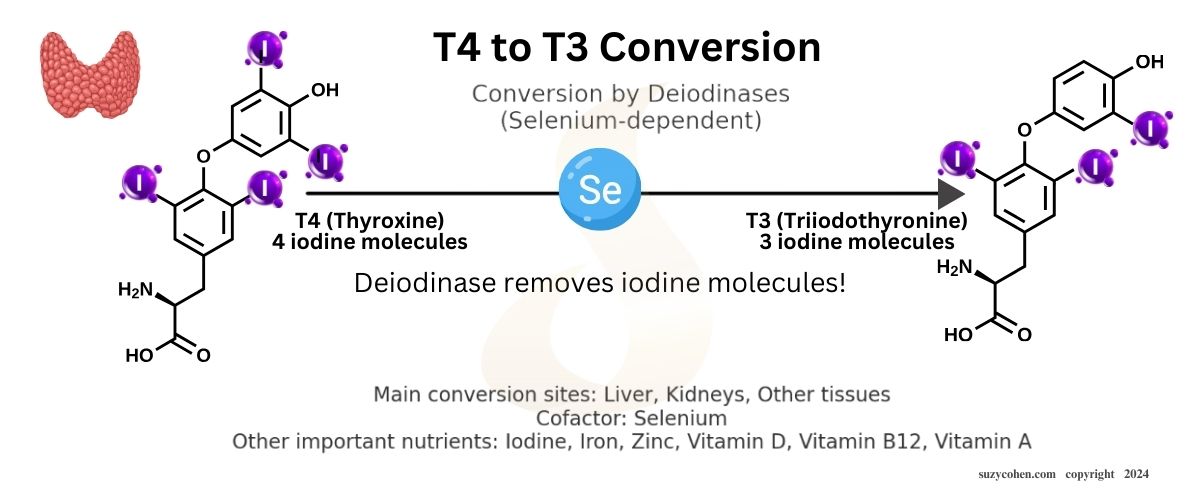
Examining the Evidence
- Study on Iodine Intake and Thyroid Nodules: A study published in the Journal of Clinical Endocrinology and Metabolism found that both iodine deficiency and excess were associated with an increased risk of thyroid nodules. The study suggested a U-shaped curve for thyroid nodule prevalence with iodine intake, indicating that both low and high iodine levels could contribute to nodule formation.
- Global Observations: Various epidemiological studies across different countries with varying levels of dietary iodine intake have shown similar trends, underscoring the delicate balance required for optimal thyroid function.
There was a STUDY that examined the relationship between iodine and nodules and it was a “U” shaped outcome. Just like a dramatic rollercoaster, the risk of thyroid nodules dips and peaks based on how much iodine you have on board. The folks in the study with urinary iodine concentrations (UIC) between 200 µg/L and 399 µg/L hit the jackpot – they had a significantly lower risk (37–57% reduction) of nodules compared to those with less iodine in their tanks.
It seems even moderate iodine levels (100-199 µg/L) helped keep thyroid nodules at bay in some of the study’s models. It’s like finding that even a small umbrella can keep you dry during a drizzle. Surprisingly, when iodine levels soared above 400 µg/L, the benefits fizzled out. This group didn’t fare any better than those with very low iodine levels. It’s a clear reminder that more isn’t always better.

Strategies for Managing Iodine Intake
To maintain a healthy balance of iodine, consider the following tips:
- Balanced Diet: Include foods rich in iodine, such as seaweed, dairy products, and fish, in your diet. Be mindful of the quantities to avoid excess.
- Iodized Salt: Use iodized salt in moderation if your dietary iodine intake is low. Read about SEA SALT and find out if that’s better.
- Supplements: Consult with a healthcare provider before starting any iodine supplements, especially if you have existing thyroid issues.
Alternative Approaches to Thyroid Health
Besides managing iodine intake, exploring natural alternatives can also support thyroid health:
- Selenium: This mineral helps activate thyroid hormones so they can be used by the body. Foods rich in selenium include Brazil nuts, sunflower seeds, and fish.
- Zinc: Essential for thyroid hormone synthesis, zinc can be found in oysters, beef, and pumpkin seeds.
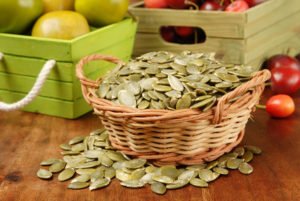
Medications for Thyroid Nodules
In cases where thyroid nodules are symptomatic or suspicious for cancer, medications might be necessary:
- Levothyroxine (generic or the brand Synthroid): Often used to treat hypothyroidism, which can sometimes underlie nodule formation.
- Radioactive Iodine: Used selectively to shrink nodules, particularly those that are overproducing thyroid hormones.
5 Strategies to Control Nodule Formation and Growth
Here is my dedicated section where I’ll share the strategies discussed above concisely, in order for you to keep your thyroid healthy and prevent the formation of thyroid nodules. Take control of this situation – don’t worry and let me share list the insights inspired by nature, science, as well as holistic health practices:
1. Stay Ahead with Regular Check-Ups
“An ounce of prevention is worth a pound of cure,” as the old saying goes. To keep an eye on your thyroid health:
- Schedule regular check-ups that include thyroid function lab tests and ultrasound screenings. To learn how to correctly take your lab tests, read my other article, 5 Essential Tips To Interpret Your Thyroid Lab Results: Normal Isn’t Optimal.
- Particularly important for those of you with a family history or past thyroid concerns—staying ahead of the game helps to tackle issues before they escalate.
2. Balance Your Iodine—Nature’s Thyroid Booster
Iodine isn’t just an element on the periodic table, it’s a cornerstone of thyroid health and some doctors think a valid method of lowering risk for thyroid nodules.
- Aim for a diet rich in natural iodine sources like seaweed, dairy, and fish. Consider dietary supplements, I have a great one that is complexed as iodine-iodine – it’s at my vitamin shop. If you want to do iodine testing, it’s pretty easy and non-invasive. There are guidelines to follow, however, so read my article, Iodine Testing Simplified: Top 6 Iodine Testing Methods Available Now.
- Moderation is key! Too much or too little can disrupt your thyroid balance, so consider a chat with your healthcare provider to find your iodine sweet spot.
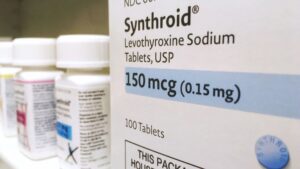
3. Foster Your Immune System to Protect Your Thyroid
Thyroid health is deeply intertwined with our immune system, especially with conditions like Hashimoto’s affecting many.
- Embrace a lifestyle that includes a balanced diet, regular physical activity, and stress management to boost your immune health.
- Consult a doctor for tailored advice if you’re dealing with autoimmune issues along with thyroid nodules. It’s all about creating a personalized shield for your thyroid!
4. Lifestyle Choices That Make a Difference
Small changes in your daily habits can lead to big wins for your thyroid nodules:
- Keep active, maintain a healthy weight, and steer clear of smoking and excessive drinking.
- Be mindful of radiation exposure and moderate your intake of goitrogenic foods in their raw state — yes, that includes your beloved kale and broccoli!
5. Review and Manage Your Medications Wisely
Medications can be double-edged swords, they help but can also hinder if not managed correctly:
- Regularly review your medications with your healthcare provider to ensure they’re not impacting your thyroid.
- For those already dealing with nodules, discuss options like Levothyroxine (Synthroid®) or Radioactive Iodine treatments as potential parts of your management plan. Other considerations are thyroid-supportive formulas especially those with digestive enzymes.
Summary
The connection between iodine and thyroid nodules embodies the principle of balance. Both deficiency and excess of iodine can lead to thyroid complications, emphasizing the need for a balanced approach to iodine consumption. Remember, the key to thyroid health does not lie solely in iodine intake but also in a broader perspective that includes overall nutritional and hormonal balance. By understanding the critical role iodine plays in your thyroid health and adjusting your diet or treatment plan accordingly, you can help maintain a healthy thyroid and reduce the risk of nodule formation.
This comprehensive look at iodine and thyroid nodules underscores the importance of personalized healthcare and proactive management of thyroid health. As always, consult with your healthcare provider before making any significant changes to your health regimen, especially if you suspect thyroid issues.

Suzy Cohen, has been a licensed pharmacist for over 30 years and believes the best approach to chronic illness is a combination of natural medicine and conventional. She founded her own dietary supplement company specializing in custom-formulas, some of which have patents. With a special focus on functional medicine, thyroid health and drug nutrient depletion, Suzy is the author of several related books including Thyroid Healthy, Drug Muggers, Diabetes Without Drugs, and a nationally syndicated column.
